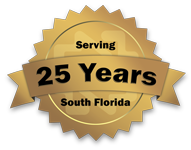Industries across the board have seen major transformations over the past decade due to leaps in technology and the cloud, but some have moved faster than others. Accounting is one area best poised to take advantage of these new advances, and, as a result, enterprises have been quick to adopt.
According to Capital Counsellor, companies using cloud accounting can end up with five times more clients than those not taking advantage of the tools. Forbes predicts that cloud accounting reduces the cost of labor by 50%. It's no wonder 78% of small businesses are expected to rely solely on cloud technology for accounting by the end of 2020.
This rapid demand for cloud-based software has led many accounting app providers to begin to phase out on-premises deployments, leading to significant changes in companies' security landscape. Though cloud accounting solutions tend to have better security overall, it's becoming increasingly important for organizations to have well-implemented internet security.
Strong firewall, local and cloud anti-virus, and patch management solutions are naturally important, but so are unique passwords, two-factor authentication, and modern cloud-based security techniques. With the percentage of web application breaches doubling in the past year, companies have been forced to adapt to combat threats in new areas.
A Rise in CASBs
The accounting industry's cloud adoption has created a demand for a security posture that allows for more control over an organization's cloud environment. In 2015, less than 5% of large enterprises were using a cloud access security broker (CASB), but by 2022 Gartner predicts 60% of organizations will have shifted. CASBs like Microsoft Cloud App Security (MCAS) have seen fast adoption as it becomes increasingly vital to have the ability to discover and act on cloud-based threats.
Microsoft Cloud App Security gives organizations the ability to enforce their security policies while retaining employee's ability to safely access the services they need in a variety of different use cases and locations. Due to its native integration with existing Microsoft solutions such as Windows 10, AATP, and MDATP, it has become one of the most popular in the industry. It also provides:
- The ability to tap into Microsoft's database of over 16,000+ apps to evaluate cloud services and determine if they meet security and compliance requirements
- Centralized app management, including the ability to sanction or block particular services
- Real-time conditional access app control with the ability to define policies for remote workers and unmanaged devices
- Quick discovery of Shadow IT through Microsoft Defender ATP integration and cloud traffic collection/analysis
- Automatic detection of anomalous behavior through the use of log data and machine learning
- Discovery, classification, and protection of sensitive data across devices and cloud services
Research suggests that these capabilities not only increase security but lead to significant savings. Faster monitoring and auditing cuts costs, while MCAS eliminates many threats automatically and reduces the likelihood of a data breach by up to 40%. Organizations are finding that the payback time for CASBs like MCAS can be less than three months, and result in a 151% ROI.
Looking to the Future
Protecting data and identifying threats is crucial in the accounting industry, so it's no surprise that those who combine the benefits of cloud-based apps with modern internet security solutions are coming out with an edge over competitors. While implementing all this can sound intimidating, managed service providers like VirtuWorks are here to lift the burden and get you set up with modern tools to suit the modern workplace. Contact us today to find out how easy it can be.


